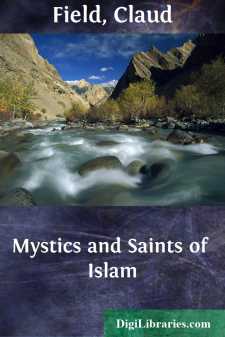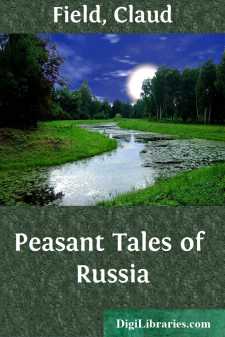Categories
- Antiques & Collectibles 13
- Architecture 36
- Art 48
- Bibles 22
- Biography & Autobiography 813
- Body, Mind & Spirit 142
- Business & Economics 28
- Children's Books 15
- Children's Fiction 12
- Computers 4
- Cooking 94
- Crafts & Hobbies 4
- Drama 346
- Education 46
- Family & Relationships 57
- Fiction 11828
- Games 19
- Gardening 17
- Health & Fitness 34
- History 1377
- House & Home 1
- Humor 147
- Juvenile Fiction 1873
- Juvenile Nonfiction 202
- Language Arts & Disciplines 88
- Law 16
- Literary Collections 686
- Literary Criticism 179
- Mathematics 13
- Medical 41
- Music 40
- Nature 179
- Non-Classifiable 1768
- Performing Arts 7
- Periodicals 1453
- Philosophy 64
- Photography 2
- Poetry 896
- Political Science 203
- Psychology 42
- Reference 154
- Religion 513
- Science 126
- Self-Help 84
- Social Science 81
- Sports & Recreation 34
- Study Aids 3
- Technology & Engineering 59
- Transportation 23
- Travel 463
- True Crime 29
Mystics and Saints of Islam
by: Claud Field
Categories:
Description:
Excerpt
PANTHEISTIC SUFISM
I.—THE IMPORT OF ISLAMIC MYSTICISM
The moral law proclaimed by Moses three thousand years ago agrees with that which governs men to-day, irrespective of their various stages of culture; the moral precepts of a Buddha and Confucius agree with those of the Gospel, and the sins for which, according to the Book of the Dead of the ancient Egyptians, men will answer to the judges of the other world are sins still after four thousand years. If the nature of the unknown First Cause is ever to be grasped at all, it can only be in the light of those unchanging moral principles which every man carries in his own breast. The idea of God is therefore not an affair of the understanding, but of the feeling and conscience. Mysticism has always so taken it, and has therefore always had a strong attraction for the excitable and emotional portion of mankind whom it has comforted in trial and affliction. Every religion is accordingly rather intended for the emotions than for the understanding, and therefore they all contain mystical tendencies. The mysticism of Islam and Christendom have many points of contact, and by mysticism perhaps will be first bridged the wide gulf which separates Islam from Christendom, and thereby from modern civilisation. Just in proportion as the various religions express the ideals of goodness and truth they approximate to one another as manifestations of the unchanging moral principle. Inasmuch as they surmised this, the Motazilites (or free-thinkers in Islam), at a time when Europe lay in the profoundest intellectual and moral bewilderment, fought for one of those ideas which, although they are quickly submerged again in the stormy current of the times, continue to work in silence and finally emerge victorious. On that day when the Moslem no longer beholds in God simply omnipotence, but also righteousness, he will simultaneously re-enter the circle of the great civilised nations among whom he once before, though only for a short time, had won the first place.
It is not perhaps too fanciful to hail, as an omen of the triumph of moral mysticism over the dogmatic rigidity of Islam, the fact that the present Sultan Muhammad V. was girded with the sword of Osman by the head of the Mevlevi dervishes, a sect founded by the great mystic teacher Jalaluddin Rumi of Iconium. Forty-three years ago a Persian Orientalist Mirza Kasim Beg wrote in the Journal Asiatique:—
"L'unique voie qui dans l'Islam puisse conduire à la reforme c'est la doctrine du mysticisme."
II.—EARLIER PHASES
The period during which the asceticism practised by the earlier Sufis passed into the dreamy pantheism which characterises the later Sufism is the end of the third century after Muhammad. This introduced a new element into Islam which for centuries exercised a powerful influence on national culture, and is still partially operative at present. The conception of God and of the relation of the finite and human with the infinite and divine from this time onward formed the chief subject of inquiry and meditation.
The man who was destined to be the first to give those ideas, which had hitherto been foreign to Arabian Sufism, definite expression was a poor workman, a cotton-carder, bearing the name of Hellaj....



